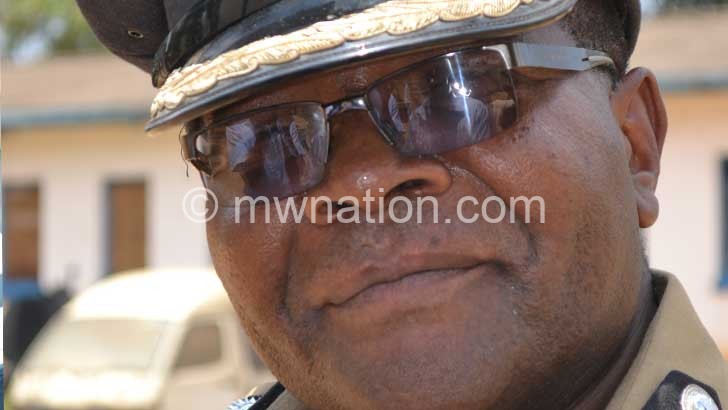New IG pledges independent police
New Police Inspector General (IG) George Kainja has pledged that the police service under his leadership will be independent and work without political consideration.
In an interview this week, he asked the public to have faith in his administration, saying he wants to run a people-centred police and that although he has been appointed by President Lazarus Chakwera—he expects that he will be allowed to function independently and in line with the law.
Said Kainja: “The President has appointed me IG of the Malawi Police Service, which is a constitutional organ. When I was appointed, the expectation was that I will be IG for an organisation that is independent and that I must be independent in my duties.”

Section 153 (1) of the Constitution establishes the police as an independent organ of the Executive “which shall be there to provide for the protection of public safety and the rights of persons in Malawi according to the prescriptions of this Constitution and any other law”.
However, the police has in recent years come under fire for perceived partisan conduct.
Security expert retired Brigadier General Marcel Chirwa, in his book, Malawi Security Sector Reform: A Return to Regular Order, observes that the police is compromised because they direct their energy towards protecting the ruling elite at the expense of vulnerable citizens.
He further states: “It means that the security organisations are primarily looking after the interest of the regime in power and not that of the people.”
When contacted, former IG Lot Dzonzi in an interview yesterday expressed optimism that it is possible to run a police service that is independent.
He said: “The key lies in following the law. The legal framework is sufficient to make the police independent and all it requires is for those in the service to follow these guidelines.
“There are several legal instruments; the Constitution, the Police Act, Police Standing Orders and the Penal Code, just to mention a few. Officers must always be on the side of the law and it will be easy for them to do their job.”
On political interference, Dzonzi said those in service must always remember that the regime has a five-year mandate while the police service goes beyond the regime.
He said while “orders from above” are always inevitable, it is wise to avoid taking unlawful orders.
“In the famous Mwanza murder case, the court ruled that you do not have to take unlawful orders and if you do, you will personally be held accountable. So, in this case, if someone gives out unlawful orders, the officer(s) may say ‘no’ on account of law. Put it in writing and explain what the law says. Such a memo becomes evidence for another day,” observed Dzonzi.
The retired IG, who was at the helm when the police reformed from a ‘force’ to a ‘service’, said public officers should emulate the example set by Malawi Electoral Commission chairperson Justice Chifundo Kachale–-who pulled off the June 23 presidential election within two weeks of his appointment. He said while they work in a political environment, they can execute their duties independently and in line with the law.
Kainja said he wants to reform the police and restore lost public confidence.
He said: “The IG will set himself targets and also set targets for all regional commissioners who in turn will set targets for their officers-in-charge, who will also set targets for their subordinates in an effort to have a police that is effective.”
The IG also pledged to conclude the Issa Njauju and Robert Chasowa murders.
Njauju, was gruesomely murdered in Lilongwe in 2016 and his body was found along the Presidential Drive while his car was burnt to ashes around Mtandire.
Chasowa, a university political activist, was murdered in 2011 and a commission of inquiry came up with a list of suspects. Both cases stalled despite pressure from citizens to have them concluded.
The United Kingdom funded a homicide expert to support the police to do an initial case review on Njauju‘s murder in 2018.
The expert provided a report to the Malawi Police Service according to acting British High Commission David Beer in a written response.
He said: “We continue to encourage the Government of Malawi to investigate this crime.”
Kainja said the issues in question will be dealt with decisively.
In the past week, police have arrested prominent people who include acting commissioner of Police for Central Regional Evelista Chisale and 12 other police officers in Lilongwe in connection with the murder of Buleya Lule, a suspect who died in police custody.
Kainja said the arrests are a result of evidence that they have and the need to respond to the public call to have the cases investigated.





